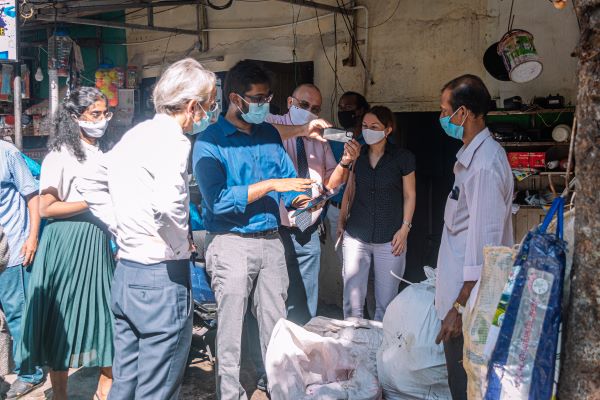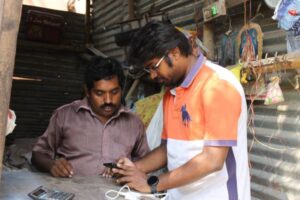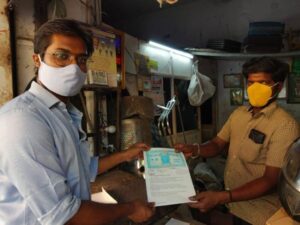Kabadiwalla Connect helped save 600 tons of plastic from going to oceans, landfills

Showcasing the work to France Ambassador to India
Rajkumari Sharma Tankha
Last month the United Nations in India launched a new project We The Change. The project aims to showcase climate solutions pioneered by 17 young Indians as a celebration of India’s climate leadership in the run up to the UNFCCC’s Conference of the Parties (COP 26) which will be held in Glasgow in November 2021. These 17 youth climate heroes have been selected for the significant impact they have made across a variety of sectors ranging from sustainable fashion, renewables, climate entrepreneurship, green architecture, and more through
Ganesh Kumar Subramanian, Co-Founder
Life And More connected with Ganesh Kumar Subramanian, the co-founder of Kabadiwalla Connect, an award-winning social enterprise in the field of waste management.
An engineer by training, Ganesh is a self-taught programmer. Born in Madurai, India, he moved to Saudi Arabia at 9 as his father was working there. He lived in Saudi Arabia for four years before returning to India. He completed the rest of his education from Chennai.
He tells us more about the Kabadiwalla Connect:
When and why did you come up with Kabadiwalla Connect
I started my career as a developer and moved to a huge IT company in India. But I was dissatisfied at work as I felt like my work wasn’t creating any meaningful impact. That is when I met with Siddharth Hande (Co-Founder of Kabadiwalla Connect) and I was introduced to the concept of a social enterprise. The fact that I can use my skills to create an impact in the lives of marginalised stakeholder fascinated me and that is how my journey with Kabadiwalla Connect started.
Training a scrap dealer on how to use the app
What all challenges did you face? How did you overcome those?
One of the major challenge was to build a relationship with the informal stakeholders. Being informal, they generally are hesitant to open out to people out of their business. We mitigated this my buying plastic scrap from them. As we became their vendors, we were able to understand in detail the dynamics of this supply chain which has been key for our success.
How do you think the project has impacted society and the environment?
We have saved over 600 tons of plastic from ending up in our oceans and landfills. We are currently servicing about 1,500 households, who segregate and responsibly dispose over 400kg of plastic every week.
The signing of the contract
What happens to the plastic waste you collect?
The plastic waste we collect through our smart bins is currently being recycled by the already established informal supply chain.
What are you presently busy with, and what are your future plans?
Waste is one of the major contributor of GHG gas emission. Growing landfills are a major problem across multiple countries. We strongly believe in the countries where informal sector is dominant, they are a strong network to solve this problem.
We currently have four major product offering for which we have completed proof of concepts:
♦Mapping of the formal and informal waste infrastructure
♦Digitalisation of informal supply chain
♦Sourcing of recyclables for brands and processors
♦Municipal Collection of waste powered by the informal sector.
In the future years, we would like scale our proof of concepts to create a much bigger impact and ultimately reducing significantly the GHG emissions and the waste that goes to the landfills.
An advice you would like to give to our readers?
As consumers, we have a huge responsibility towards the waste problem in our country. Segregation of the household waste is not practiced in most parts of the country and if done meticulously it can significantly reduce the amount of waste that is being sent to our landfills and ocean. I would like to take this opportunity to encourage each one of us to start segregating their waste at home.




